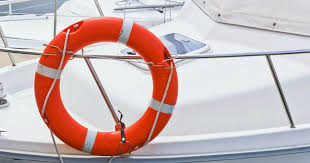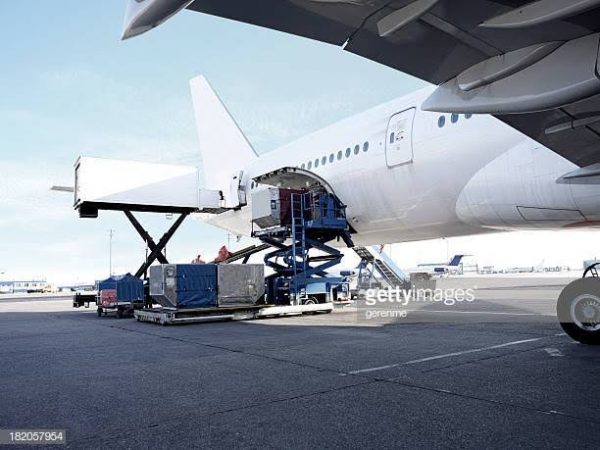Basic Protocols For Safety On Recreational Boats

This week’s edition of Shippers’ Guide examines boating, as a recreational sport that has been around for over 300 years. During this time many customs and traditions have been developed in order to help relieve the natural stress that comes with dealing with the elements. No matter how long you have been boating there is always that tense feeling when you are out there on your own. If this feeling ever goes away, you should probably take up golf. Whether underway, anchoring, mooring, docking at a marina or cruising with friends, don’t add to the stress on board or of your boating neighbor by ignoring custom and tradition.
Underway: Obviously, the rules of the road are going to dictate how you operate your vessel underway in order to prevent collision. But what if no risk of collision exists, are you then free to do whatever you want when operating in the vicinity of other vessels? Above all, remember that you are responsible for you own wake and any damage done by it.
When overtaking a slower vessel in open water, do so with as much room as depth conditions allow and slow your speed, if necessary, to avoid rocking the other vessel. There is nothing worse than being below in a slow trawler or sail boat, cooking breakfast, and being suddenly overtaken in close quarters by a loud, wake-throwing, go-fast boater. Especially if the wake causes the hot cooking to be thrown around the galley.
It should be remembered that sometimes the boat being overtaken may need to slow its speed to accommodate the overtaking vessel. If you are proceeding at 8 knots, the passing boat can only slow to about 10 knots to still have enough speed difference to pass successfully. However, at that speed the overtaking vessel still throws an uncomfortable wake. You may need to slow to 4 knots to allow the overtaking vessel to pass at 6 knots which allows for a much smaller wake.
If you are overtaking a vessel under sail, if possible, overtake them well to leeward or pass astern in a crossing situation, so as not to block their wind.
Anchoring and mooring: Be sure to enter an anchorage or mooring area at a slow speed. This is like moving into a new neighborhood. You want your neighbors to like you. Again, you don’t want to create a wake that would upset someone’s dinner or drink.
Remember that the first person in the anchorage has the right to determine the swing radius. Don’t get too close to other anchored boats. The wind can change and in a matter of minutes you can have fouled and tangled anchor lines, and hulls and dinghies banging against each other. If you need to use spotlights, make sure you don’t inadvertently blind your neighbor.
Before anchoring evaluate your intended behavior; the more music, people on board, children, pets and smoke from your barbecue that you intend to create, the further downwind you should be from your neighbors. Sound carries exceptionally well over water and many boaters retire early for an early departure. Respect their right to sleep in peace. Also, remember that any comment you make may be heard.
If you are using your dinghy at night to go to shore or visit others in the anchorage, do so using oars and not your outboard. How far could the shore be if you’re anchored in ten feet of water? Some boaters are friendly and like to socialize, while others are reflective and just want to be left alone. If you are rowing around the anchorage and see people on deck, you should be friendly but not intrusive unless, of course, encouraged. Tradition dictates that if you approach another vessel you should do so on the starboard side six to ten feet away. If you strike up a conversation and you recognize by the tenor of the strangers that they really aren’t interested, just move on out of their space.
Make sure you get permission before picking up a guest mooring. It may be reserved for another boater arriving later on or it may be unsuitable for your vessel.
Mariners’ manner: When you stop for fuel, keep in mind that other boats may be waiting to get to the fuel dock. Do not leave your boat to pick up groceries or hang out in the bait shop. Tie up securely, follow proper fueling procedures, pay the bill and move away to another docking area or guest slip if you need to do other business ashore.
If you are already safely docked in the marina and there is no dock master or helper around to assist boaters as they dock and undock, it is courteous to assist others in your vicinity with their lines. This may sound like an oxymoron, but boating is like a fraternity of individuals. Everyone has a right to their space but everyone provides assistance whenever necessary.
Make sure to keep the area around your slip clear. Roll up and stow hoses, place power cords in such a manner as to not trip a passerby who is looking up at your new radar reflector. Keep buckets, mops, tackle, docking lines and other items stowed in their proper place, not strewn around on the dock. When finished with carts or other equipment at the marina intended for common use, be sure to put it back where it belongs so others have access.
Tips for on board guests: Whenever you invite guests aboard for the day, a weekend or an extended cruise, you should explain to them in advance what is expected of them, especially if they are not experienced boaters. If they are expected to perform duties onboard make sure they know this (and how to do it) before you give the order to swab the deck or handle lines. If you have special “rules” regarding behavior on your boat (smoking, drinking, etc.), let them know before they arrive.
Instruct your guests to bring a minimum of clothing appropriate for the climate in which you will be operating as well as your final destination. Make sure each guest has a good pair of non-skid deck shoes. If your plans are to go ashore for activities other than lying on the beach, make sure they bring something more appropriate than a swimsuit and thongs. Explain the problem of limited space on your boat and ask them to pack their gear in a duffel bag or other soft-sided and collapsible luggage.
If you are planning to visit foreign ports, be sure to let your guests know in advance what documents and Identity Cards they need to bring and make them aware of any local customs they should know about.
When quests arrive, assign a locker to each where they may stow their gear and make clear that everything should be kept in its assigned place. It could be dangerous or impair the operation of your boat to have clothing and other gear floating around loose.
Make sure your guests know that your times of departure are based on tide, current, weather conditions and time to make the next destination. You should explain that they should be onboard, have gear stowed and be ready to leave well before the departure time you have set.
Explain also that the time to rise and shine is based on the convenience of everyone aboard and the cruising plans for the day. You, as skipper, should be the first to rise and the others should follow shortly after. Make guests aware of the limited washing and toilet facilities on the boat and instruct them to be time considerate to others. Also instruct them thoroughly on the use of the marine head and the importance of water conservation when cruising between destinations. Make clear, also, when you announce in the evenings that it is time to retire everyone should do so.
Familiarize your guests with safety and emergency procedures before leaving the dock. . Explain fueling procedures, docking and undocking plans, etc. Bucking the trend begins with boat and motor maintenance, and upkeep of survival and navigational equipment, including radios, GPS, charts, flares, flashlights, rain gear, whistles, distress flags, water and food stores.
Tune your radio to the National Weather Service to listen for small-craft warnings, and heed them. If you capsize or someone falls overboard, stick with the boat. Swimming exposes more surfaces of the body to cold water, hastening the onset of hypothermia. It’s also much easier for rescuers to spot a boat than a head bobbing in choppy water. If you can’t reboard the boat or crawl on top of the floating hull, assume the Heat Escape Lessening Position (HELP) with knees drawn to chest, ankles crossed, and forearms crossed over chest to insulate the body’s core.
Be Weather-Wise: Always check local weather conditions before departure; TV and radio forecasts can be a good source of information. If you notice darkening clouds, volatile and rough changing winds or sudden drops in temperature, play it safe by getting off the water. Proper boating safety includes being prepared for any possibility on the water and following a Pre-Departure Checklist is the best way to make sure no boating safety rules or precautions have been overlooked or forgotten. One of the most important parts of boating safety is to use your common sense. This means operating at a safe speed at all times (especially in crowded areas), staying alert at all times and steering clear of large vessels and watercraft that can be restricted in their ability to stop or turn. Also, be respectful of buoys and other navigational aids, all of which have been placed there to ensure your own safety.
Designate an Assistant Skipper: Make sure more than one person on board is familiar with all aspects of your boat’s handling, operations, and general boating safety. If the primary navigator is injured or incapacitated in any way, it’s important to make sure someone else can follow the proper boating safety rules to get everyone else back to shore.
Develop a Float Plan: Whether you choose to inform a family member or staff at your local marina, always be sure to let someone else know your float plan. This should include where you’re going and how long you’re going to be gone. A float plan can include the following information; name, address, and phone number of trip leader; name and phone number of all passengers; boat type and registration information; trip itinerary; types of communication and signal equipment onboard, such as an Emergency Position Indicating Radio Beacon (EPIRB) or Personal Locator Beacon (PLB)
Make Proper Use of Lifejackets: Did you know that the majority of drowning victims are the result of boaters not wearing their lifejackets? Make sure that your family and friends aren’t part of this statistic by assigning and fitting each member of your onboard team with a life jacket prior to departure. Wear it!
Avoid Alcohol: Practice boating safety at all times by saving the alcohol for later. The probability of being involved in a boating accident doubles when alcohol is involved and studies have shown that the effects of alcohol are exacerbated by sun and wind.
Learn to Swim: If you’re going to be in and around the water, proper boating safety includes knowing how to swim. Local organizations, such as the Red Cross and others, offer training for all ages and abilities.
Take a Boating Course: Beginning boaters and experienced experts alike need to be familiar with the boating safety rules of operation. You can learn boating safety rules by taking a local community course or on line to help educate yourself.
Consider a Free Vessel Safety Check: Take advantage of a free vessel safety check from the coast guard in your area. They offer complimentary boat examinations to verify the presence and condition of certain safety equipment required by state and federal regulations. They’ll provide a specialist to check out your boat and make helpful boating safety tips and recommendations. They also offer virtual online safety checks as well. By being up front, honest and direct with your guests everyone onboard will have a safe and more pleasurable trip.








